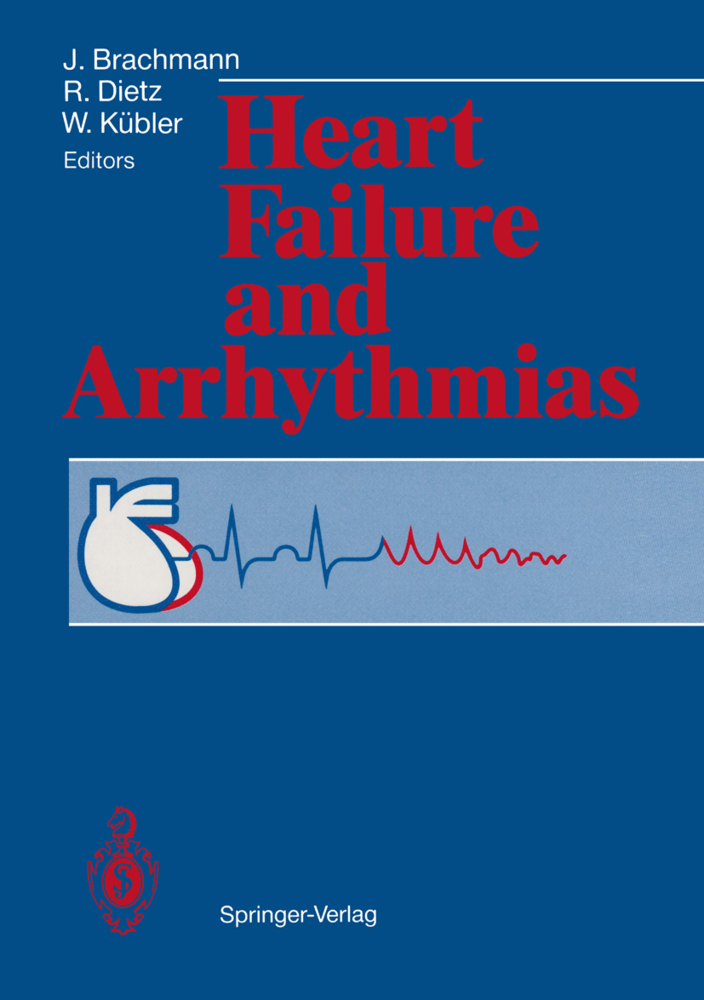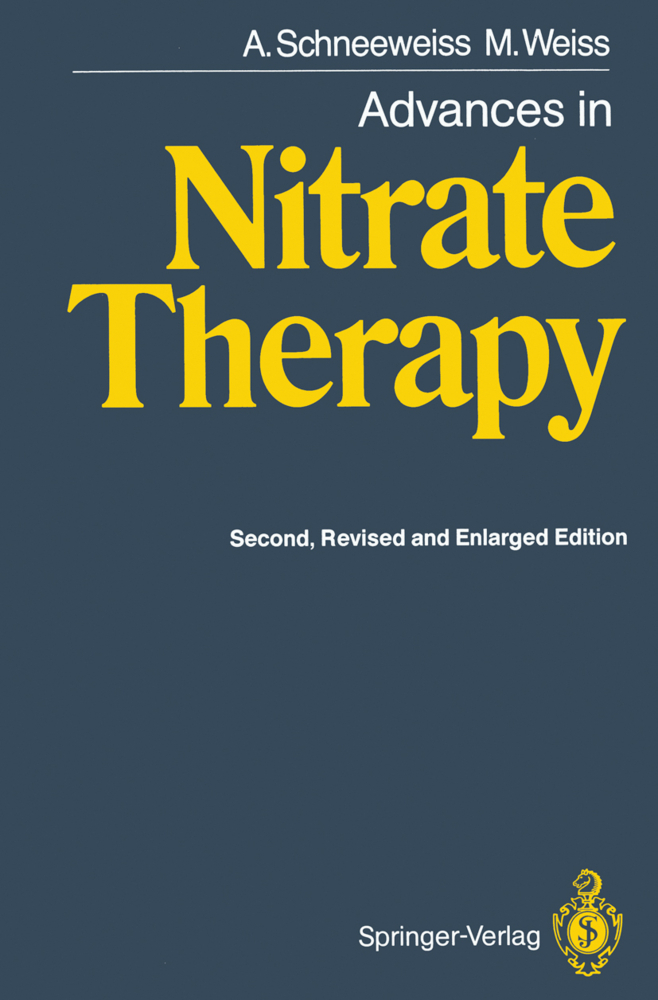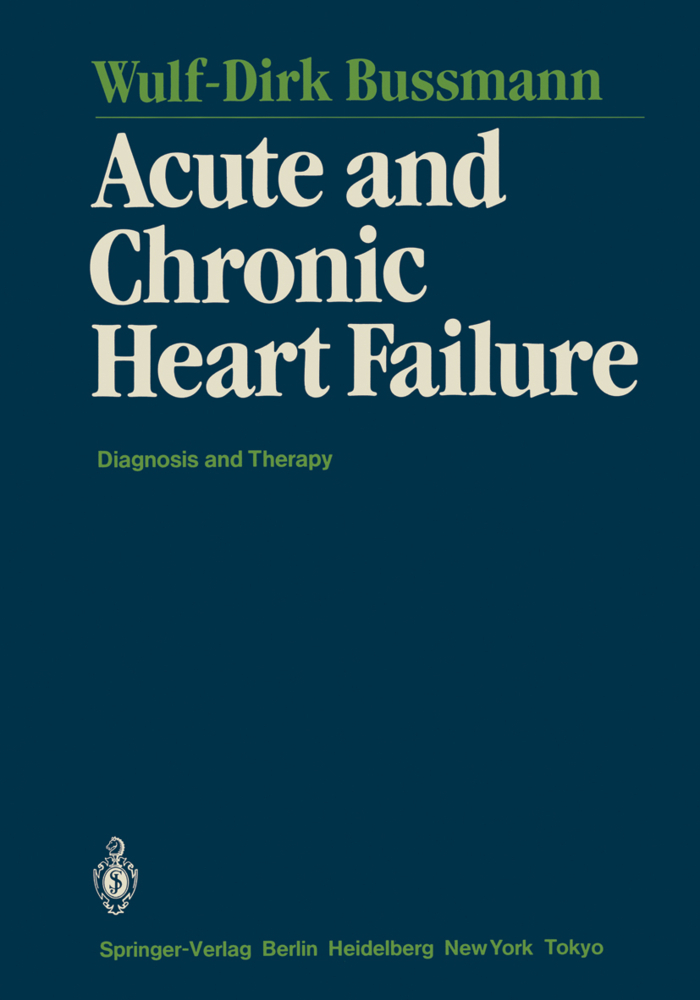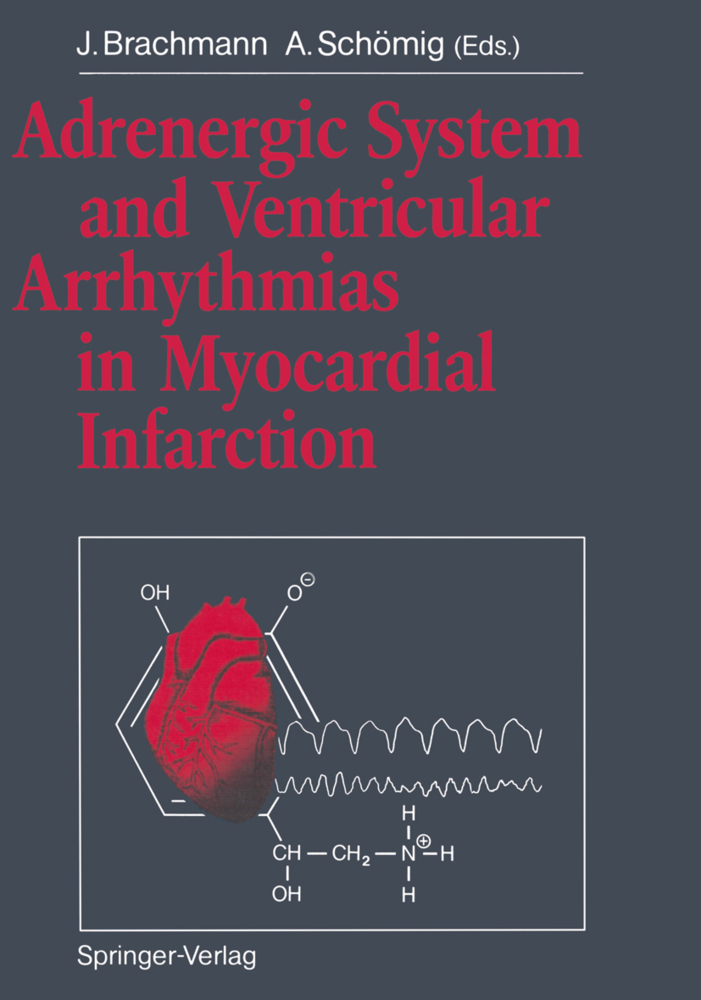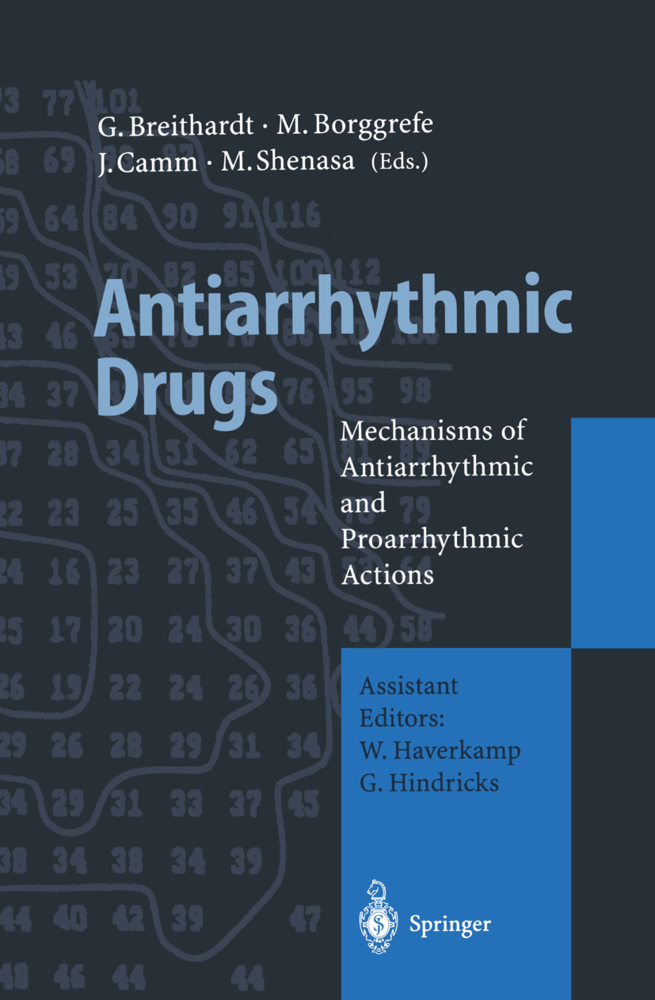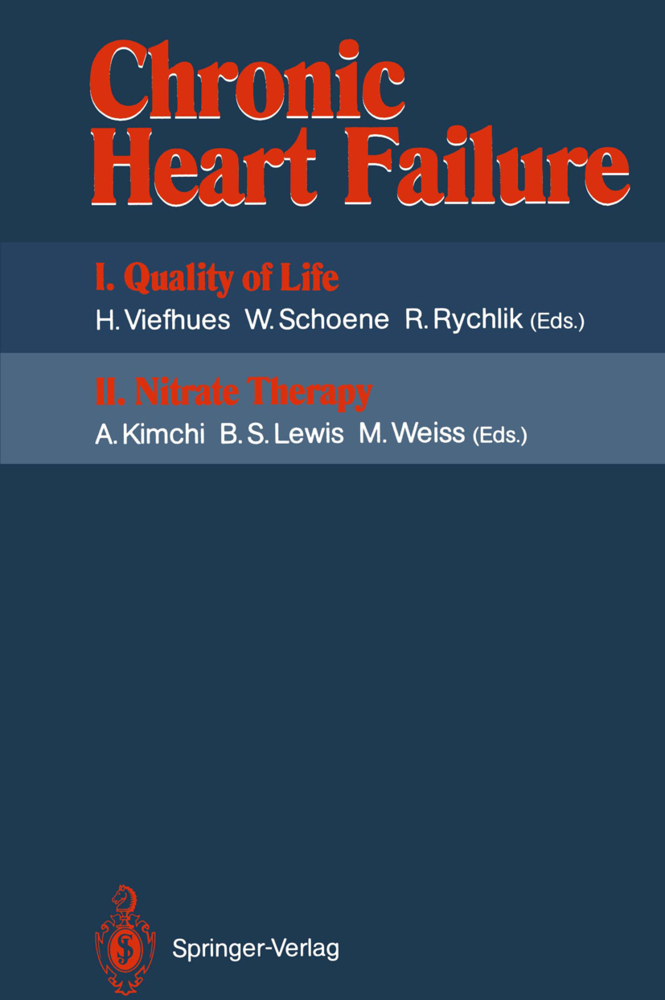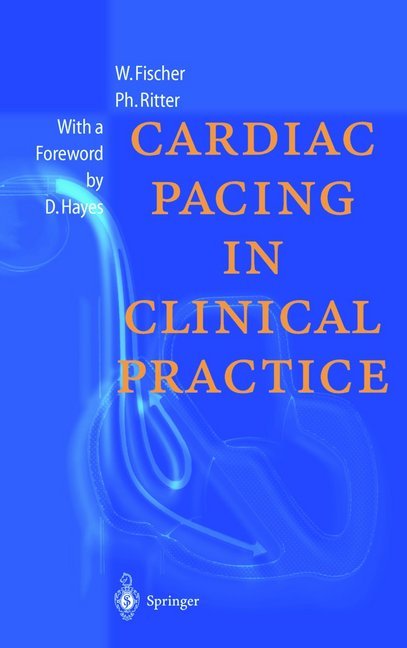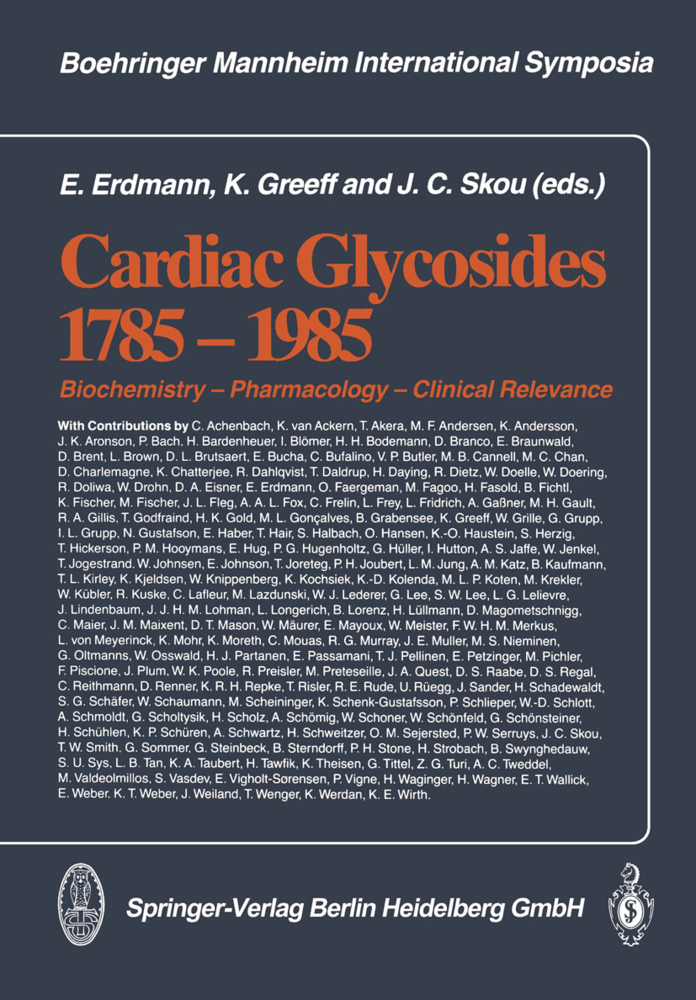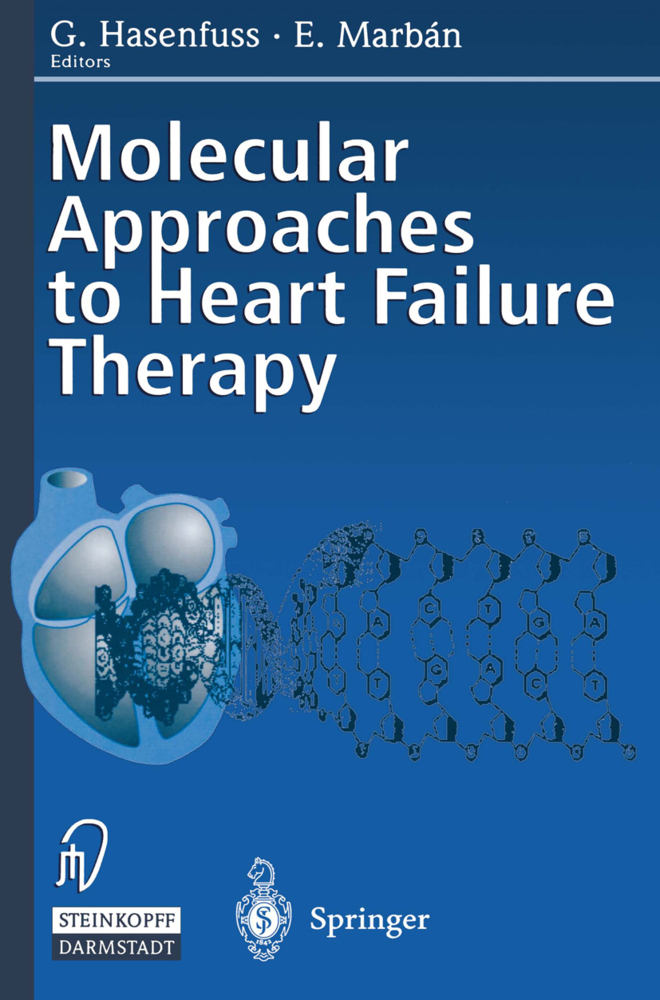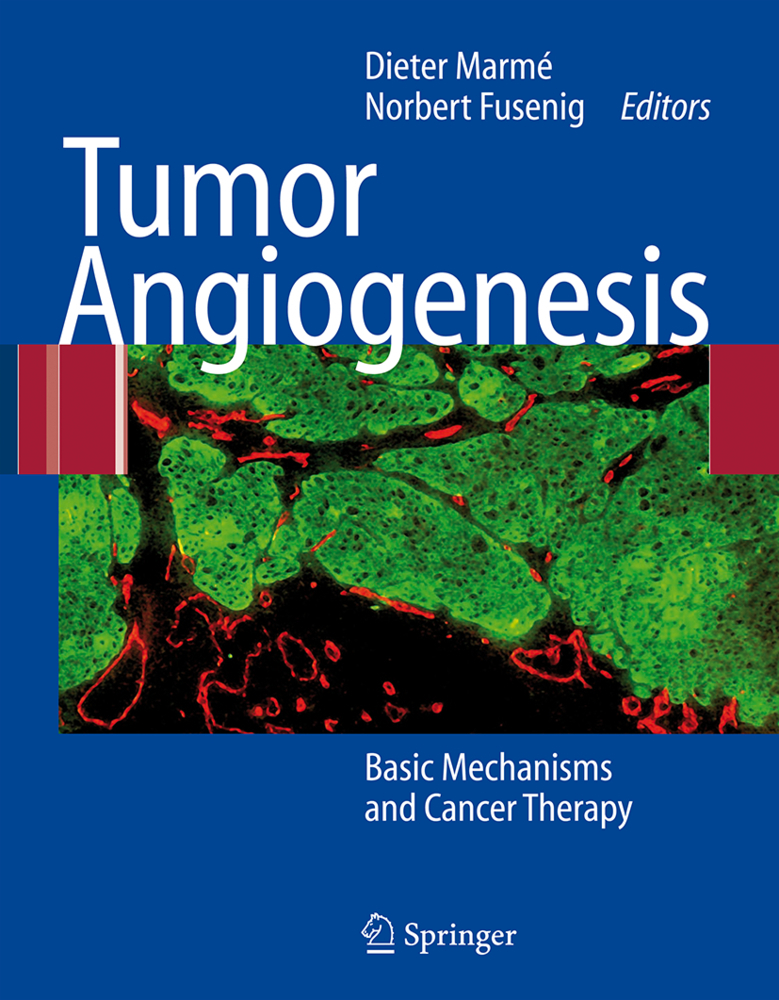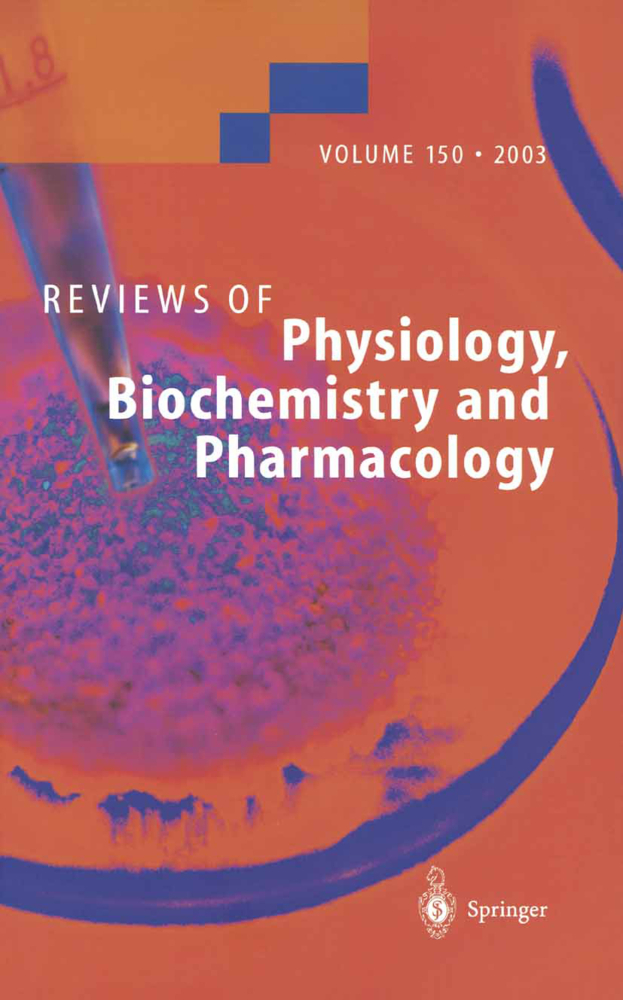Heart Failure and Arrhythmias
Heart Failure and Arrhythmias
Heart failure is a clinical entity characterized by a certain combination of symptoms and signs. Although there is neither a definition covering all aspects of it nor any generally accepted criteria for evaluating its severity, it is the endstage of many different heart diseases, in most cases associated with a poor prognosis. Approximately 50% of the patients with advanced heart failure die from pump failure, whereas the other half succumb suddenly and unexpectedly due to ventricular tachyar rhythmias. Although impaired left ventricular function is the main risk factor, sudden death may already occur in less severe cases of heart failure. In certain cardiac diseases, such as dilative cardiomyopathy, the occurrence of ventricular arrhythmias may be related directly to the underlying heart disease, as the frequency and severity (Lown classifica tion) of ventricular ectopics are not related to left ventricular impair ment. Treatment of ventricular tachyarrhythmias is still an unsolved prob lem, especially in patients with heart failure, who need it the most. The vast majority of antiarrhythmic agents are more or less negatively ino tropic and may therefore substantially aggravate ventricular impair ment. Nonpharmacological approaches - such as the implantation of a defibrillator - still require major surgery with the associated increased risk to the patient in heart failure. No agreement has yet been reached on the criteria for evaluating how effective treatment has been, either for heart failure or for ventricular tachyarrhythmias.
Pathogenesis of Impaired Pump Function in Congestive Heart Failure
Pathogenesis of Ventricular Arrhythmias in Heart Failure
Evaluation of the Severity of Heart Failure: Role of Compensatory Mechanisms
Tissue Renin-Angiotensin Systems in the Pathophysiology of Heart Failure
Evaluation of the Severity of Ventricular Rhythm Disturbances: Value of Electrophysiological Testing and Recording of Late Potentials
II Approaches to Treatment
Hemodynamic Approach
Editorial: How to Treat - The Hemodynamic Approach
Structural Basis of Left Ventricular Dysfunction: Role of Collagen Network Remodeling and Potential Therapeutic Interventions
Treatment of Heart Failure by "Afterload" Reduction: Vasodilator or Angiotensin Converting Enzyme Inhibitor?
Possible Role of Positive Inotropic Drugs in Congestive Heart Failure and in Left Ventricular Dysfunction
Prognostic Indices and Prolongation of Life
Antiarrhythmic Approach
Editorial: Heart Failure and Malignant Ventricular Arrhythmias
Heart Failure and Ventricular Arrhythmias - The Antiarrhythmic Approach
When to Treat Arrhythmias in Heart Failure?
Antiarrhythmic Drugs in Heart Failure
Nonpharmacologic Therapy for Malignant Ventricular Tachyarrhythmias in Patients with Congestive Heart Failure
Role of Antiarrhythmic Drug Therapy in Patients with Congestive Heart Failure
III Prognosis
Obtaining Reliable Information from Randomized Controlled Trials in Congestive Heart Failure and Left Ventricular Dysfunction
Prognostic Significance of Asymptomatic Ventricular Arrhythmias in Heart Failure: Potential for Mortality Reduction by Pharmacologic Control.
I Pathophysiology
Editorial: Heart Failure and ArrhythmiasPathogenesis of Impaired Pump Function in Congestive Heart Failure
Pathogenesis of Ventricular Arrhythmias in Heart Failure
Evaluation of the Severity of Heart Failure: Role of Compensatory Mechanisms
Tissue Renin-Angiotensin Systems in the Pathophysiology of Heart Failure
Evaluation of the Severity of Ventricular Rhythm Disturbances: Value of Electrophysiological Testing and Recording of Late Potentials
II Approaches to Treatment
Hemodynamic Approach
Editorial: How to Treat - The Hemodynamic Approach
Structural Basis of Left Ventricular Dysfunction: Role of Collagen Network Remodeling and Potential Therapeutic Interventions
Treatment of Heart Failure by "Afterload" Reduction: Vasodilator or Angiotensin Converting Enzyme Inhibitor?
Possible Role of Positive Inotropic Drugs in Congestive Heart Failure and in Left Ventricular Dysfunction
Prognostic Indices and Prolongation of Life
Antiarrhythmic Approach
Editorial: Heart Failure and Malignant Ventricular Arrhythmias
Heart Failure and Ventricular Arrhythmias - The Antiarrhythmic Approach
When to Treat Arrhythmias in Heart Failure?
Antiarrhythmic Drugs in Heart Failure
Nonpharmacologic Therapy for Malignant Ventricular Tachyarrhythmias in Patients with Congestive Heart Failure
Role of Antiarrhythmic Drug Therapy in Patients with Congestive Heart Failure
III Prognosis
Obtaining Reliable Information from Randomized Controlled Trials in Congestive Heart Failure and Left Ventricular Dysfunction
Prognostic Significance of Asymptomatic Ventricular Arrhythmias in Heart Failure: Potential for Mortality Reduction by Pharmacologic Control.
Brachmann, Johannes
Dietz, Rainer
Kübler, Wolfgang
| ISBN | 978-3-642-75328-2 |
|---|---|
| Artikelnummer | 9783642753282 |
| Medientyp | Buch |
| Auflage | Softcover reprint of the original 1st ed. 1990 |
| Copyrightjahr | 2012 |
| Verlag | Springer, Berlin |
| Umfang | XIV, 179 Seiten |
| Abbildungen | XIV, 179 p. 14 illus. |
| Sprache | Englisch |

